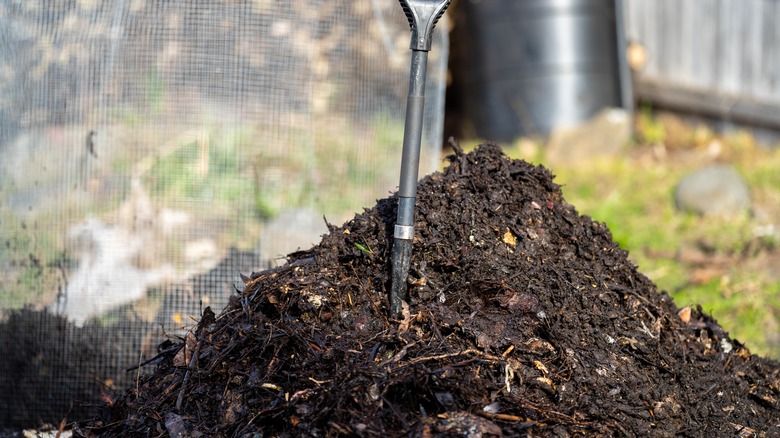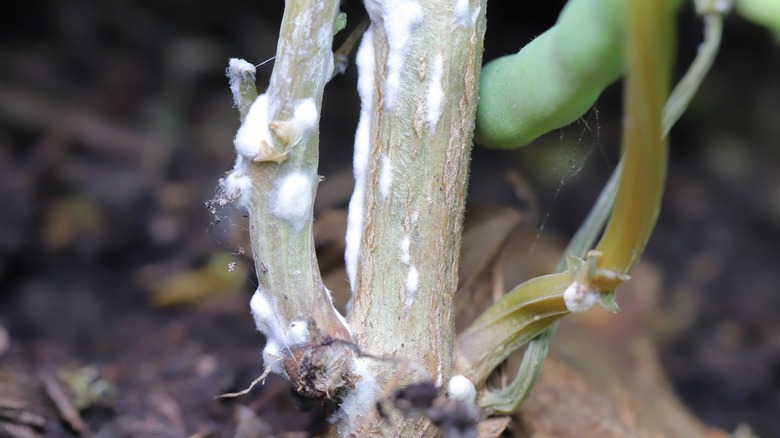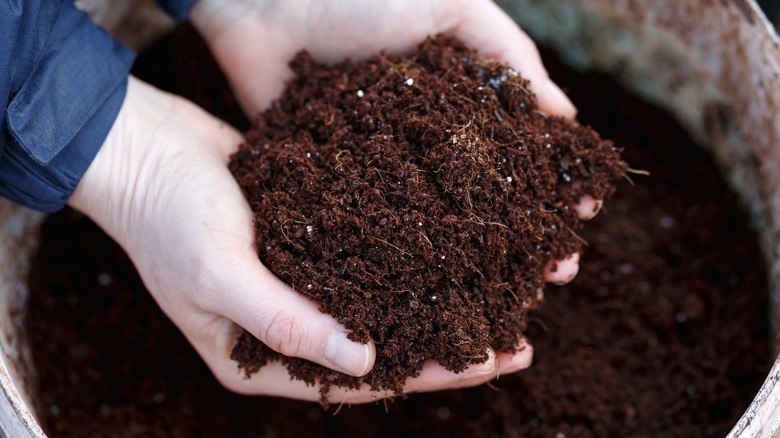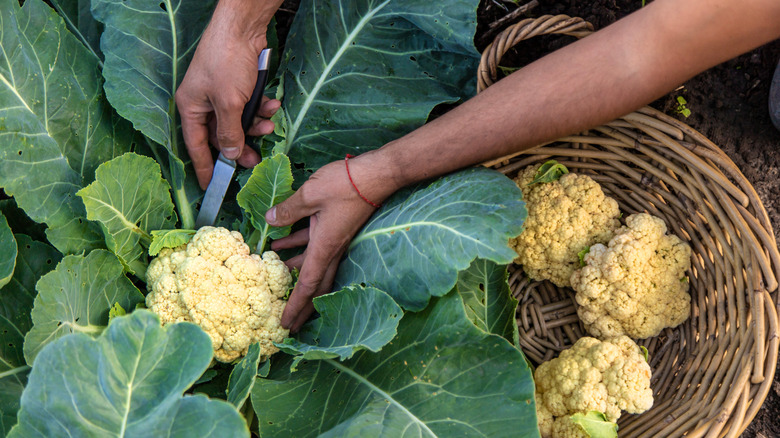Cons Of Using Mushroom Compost In Your Garden
We may receive a commission on purchases made from links.
The name "mushroom compost" is a little misleading. It sounds like this should be a product made out of mushrooms, right? And if you think about your favorite fungi being used to make compost, that sounds pretty great, as those little buttons are known for being exceptionally high in nutrients. However, this fertilizer is actually a byproduct of large-scale mushroom farming. When the planting medium no longer has the nutrients needed to grow mushrooms, it is sold for use in home gardens. You can find it in bulk or in smaller bags at your local garden center.
Although there are benefits to using this compost, gardeners must know what they are paying for and what to expect from it. For example, if you want to add a significant amount of nutrients to your garden, you will not get it from this product — most of those were used up in the initial farming process, leaving some unwanted elements behind.
Disadvantages of using mushroom compost
One of the biggest concerns about mushroom compost in the garden is that it tends to have high levels of salt, which can be detrimental to most plants in large quantities, and potentially deadly to seedlings and young plants. Another problem with this product is that it is alkaline. Most plants prefer slightly acidic soil; some (including blueberries and azaleas) like very acidic soil. Therefore, adding an alkaline product like mushroom compost to garden soil that is already neutral or slightly alkaline can cause your garden to underperform. This can definitely be frustrating for gardeners who thought they were buying a nutrient-dense product.
While mushroom compost is often recommended for use in gardens because of its moisture-retention properties, this can have a negative effect in areas that already have a problem with too much water. Although mushrooms thrive in a moist soil environment, that same soil structure can cause fungal issues and root rot in many garden plants.
How mushroom compost might help your garden
We do not want to completely vilify mushroom compost because it has some valuable properties and is generally very cheap. What matters is that you use it correctly in your garden and for the right reasons. If you want to add compost to your garden for nutrients and healthy plant growth, compost made from a combination of plant waste and manure is ideal.
As we mentioned earlier, mushroom compost does have some nutrients, but the most significant benefit of adding this amendment to your garden is to help retain moisture. In regions that get very hot in the summer, adding mushroom compost can help make the most of the water you use to keep your plants alive. It also helps condition the soil, which basically means that it improves the overall structure of the soil, making it more amenable to growing good food. Adding mushroom compost to dense clay soil can help loosen it up while using it in sandy soils can help the garden retain water and nutrients. If you're thinking about adding compost to your growing area, mushroom compost might be a good choice — just make sure you understand what you are getting and use it sparingly.
Vegetable gardeners shouldn't shrug off mushroom compost
Most tips for growing a healthy garden would advise against using mushroom compost on flowers and shrubs, but is mushroom compost good for growing vegetables? The answer may depend on which veggies you're trying to grow. The very same qualities that make mushroom compost "bad" can also be advantageous in some garden beds. For example, fixing imbalances in soil acidity is important for growing many popular vegetables. A product like the SONKIR Soil pH Meter can help you gauge whether mushroom compost will help or harm your specific plants. Brassicas tend to tolerate alkaline soil very well, so your brussel sprouts, broccoli, cauliflower, and kale may appreciate the high pH value of mushroom compost. Other alkaline-friendly vegetables include garlic, asparagus, leeks, and peas. Even if the mushroom compost makes your soil somewhat soggy, these plants can withstand the wetter conditions.
It's true that mushroom compost offers a weaker balance of nutrients than other products, but this makes it good for nourishing vegetables without overwhelming them. Legumes, beans, and peas are particularly sensitive to excess nitrogen. Because mushroom compost has a relatively low nitrogen content, it's appropriate for enriching gardens where these plants are grown. There's also great news for fans of fungi. Even though the high-production mushroom farms have thrown it out, "spent" mushroom compost is still good for growing mushrooms in your own backyard.



